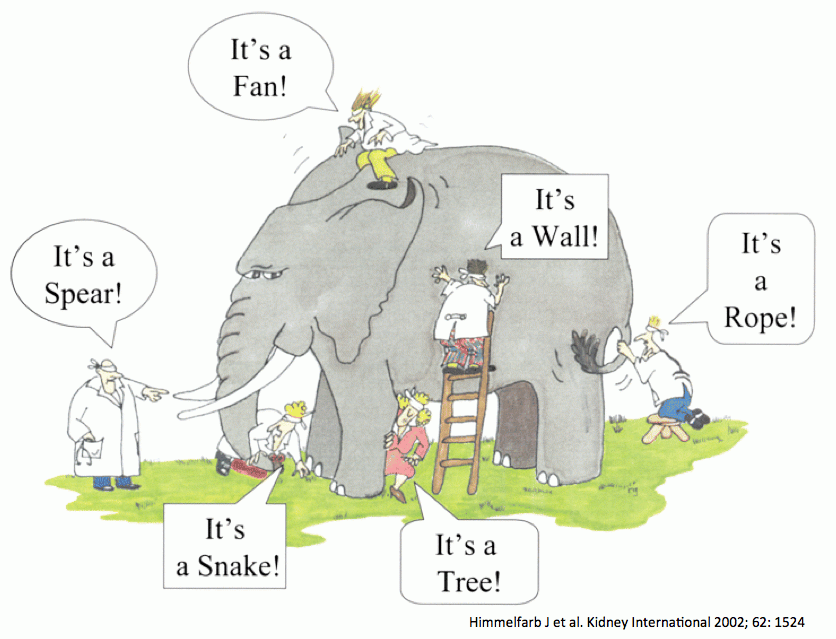I really liked this concept from The Systems Thinker blog.
The obvious thought one might have when a problem arises is to try and solve it right away.
I mean it’s a problem right? It needs to be eliminated.
- If it’s business problem, it’s probably losing you revenue (and sleep).
- If it’s a relationship problem, it’s probably making your partner unhappy.
- If it’s a health problem, it’s probably making you feel gross.
What if I told you that it’s not the problem that’s the problem? What if I told you that that problem is actually part of a larger issue?
You’d probably tell me “duh!”
But, in the moment, it’s tough to slow down, zoom out, and look at the larger system at play.
Unless you’re intentional about it or it’s something you’re already used to doing (like if you work in tech or read a lot of philosophy), you typically end up standing too close to the elephant.

Dissolve
The better, non-obvious action to take when a problem arises is to dissolve it.
And you do that by redesigning the environment or system in which the problem arises as to completely prevent the problem from ever happening again.
Or, at least, make it much less likely for it to happen again.
This takes a combination of common sense and deliberate thought and research into why the problem exists in the first place.
Examples
Business problem
Your customers are churning.
Solving the problem: Your first reaction might to “do more”— ship more features, send more engagement emails, add more integrations.
Dissolving the problem: But in reality, churn might not be “the problem”.
The problem might actually be that you don’t actually know what a happy customer looks in your product.
You need a better system for analyzing how your customers use your product. How do those graphs look when they’re about to churn? How do those graphs look when they renew?
Relationship problem
Your partner is unhappy because they feel like you don’t spend enough time together.
Solving the problem: Your first reaction might be to pacify your partner: “What do you mean? We’re together all the time.” Or to do “extra” things like go on trips.
Dissolving the problem: But in reality, the problem might be arising from your everyday life with your partner.
So a way to dissolve the problem could be to simply involve your partner in things that you typically do on your own everyday.
Going to buy groceries? Do it together. Doing work? Do it right next to them and talk to them about stuff from work that they might find interesting. Making some food? Invite your partner to cook with you. Presence.
Health problem
You feel gross.
Solving the problem: An initial reaction may be to start working out or to work out more.
Dissolving the problem: But in reality, what you eat everyday are foods that are highly-processed, high in sugar, and other junk.
Eat mostly plants. And try to get your heart pumping everyday (go for a walk, cardio, lift weights, etc).